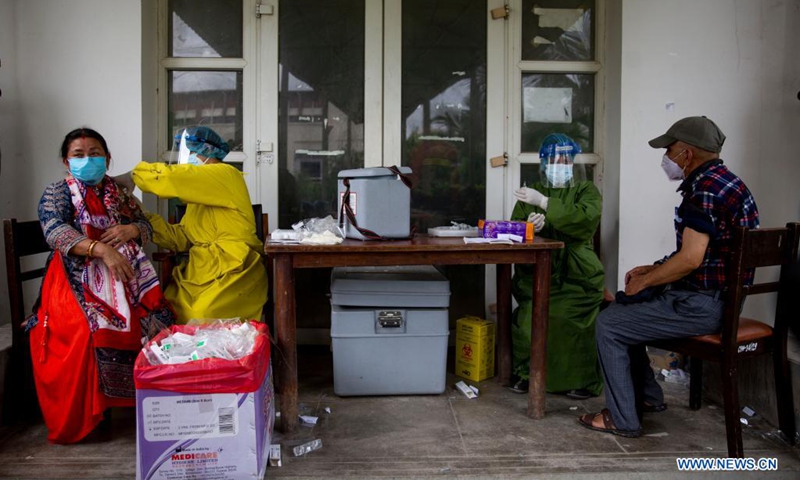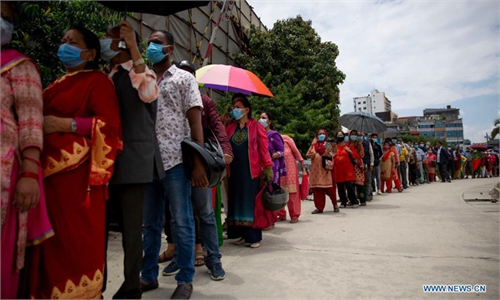COVID-19 takes heavy toll on SDGs
UN report shows pandemic hurt global extreme poverty reductions

People get the second doses of COVID-19 vaccine in Kathmandu, Nepal on July 6, 2021.(Photo: Xinhua)
The COVID-19 pandemic has rolled back years, or even decades, of progress toward the Sustainable Development Goals (SDGs), a UN report shows.
The effects of the pandemic have reversed much of the progress made in reducing poverty, with global extreme poverty rising in 2020 for the first time since the late 1990s, according to the report released on Tuesday.
Even before COVID-19, the world was not on track to achieve the goal of ending poverty by 2030. Based on current projections, the global poverty rate is expected to be 7 percent [around 600 million people] in 2030, missing the target of eradicating poverty, SDG1.
COVID-19 has had a further and profound impact on hunger and food security, triggered by disruptions in food supply chains, income losses, widening social inequities, an altered food environment and price hikes. Between 83 million and 132 million additional people globally are likely to have experienced hunger as a result of the pandemic in 2020, according to The Sustainable Development Goals Report 2021.
Hunger was already on the rise prior to the pandemic. In 2019, some 688 million people were going hungry, compared with 628 million in 2014. In 2019, some 2 billion people were suffering from food insecurity.
The pandemic has interrupted essential health services and poses major health threats beyond the disease itself.
A decade of progress in reproductive health, maternal health and child health could be stalled or reversed, according to the report.
COVID-19 has wiped out 20 years of education gains, with an additional 101 million children in Grades 1 through 8 falling below minimum reading proficiency levels in 2020, it said.
One year into the crisis, two in three students were still affected by full or partial school closures. The poorest and most vulnerable children are bearing the brunt of the crisis, exacerbating long-standing inequalities. Many risk never returning to school; some are forced into child marriage or child labor.
The social and economic impacts of the COVID-19 pandemic have adversely affected progress toward gender equality. Violence against women and girls has intensified; child marriage, which was on the decline in recent years, is expected to increase; and women have suffered a disproportionate share of job losses and increased care work at home.
The pandemic is exacerbating existing inequalities within and among countries and hitting the most vulnerable people and the poorest countries hardest.
COVID-19 is estimated to increase the average Gini index, which measures income inequality, for emerging market and developing countries by 6 percent, it said.

